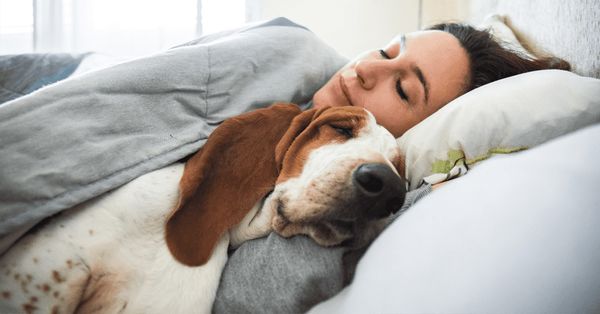
Getting a good night’s sleep is essential for overall well-being, and recent research from Canisius College in New York State has made a surprising discovery – women sleep better next to dogs. The study, led by animal behaviorist Christy Hoffman, Ph.D., surveyed nearly a thousand women in the United States and found that dogs make better sleep companions than people or cats.
According to the study, 55% of participants shared their bed with at least one dog, while 31% shared it with at least one cat. The research also revealed that dogs’ sleeping patterns are more similar to humans’ compared to cats, which could contribute to better sleep quality. Hoffman suggests that dogs may adapt more easily to their owner’s sleep schedule, reducing disruptions caused by different sleep patterns.
In addition, the study highlights that dogs, with their need for routines like morning walks, can help their owners maintain a consistent schedule, positively impacting sleep quality. The research also found that dogs tend to stay still during sleep, providing a more stable sleeping environment compared to restless cats.
One significant factor contributing to dogs being preferred sleep companions is the sense of security they provide. Hoffman notes that dogs may offer emotional comfort by alerting their owners in case of emergencies or deterring thieves with their bark, a role less likely assumed by cats.
However, it is important to recognize that the study’s findings are based on participants’ perceptions of their pets’ impact on sleep quality and duration. Factors like snoring or bed warmth may vary among individual dogs, and the benefits are subjective. While the research provides intriguing insights, more objective studies are needed to definitively establish dogs as superior sleep partners.
Hoffman emphasizes the importance of continuing research to understand the contexts in which pets positively or negatively affect sleep quality. As many households in the United States have pets, further research could shed light on the nuanced relationship between pet companionship and sleep.



